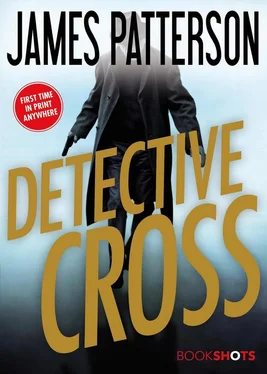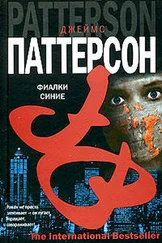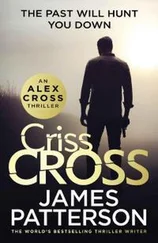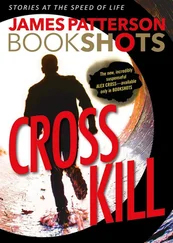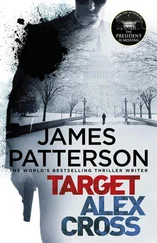“He’ll probably be homeless again,” Ali said.
“Unless I can figure out a way to help him.”
My grandmother made a tsk noise. “Don’t you have enough on your plate already? Helping your attorneys prepare your defense? Seeing patients? Being a husband and father?”
Her tone surprised me. “Nana, you always taught us to help others in need.”
“Long as you see to your own needs first. You can’t do real good in the world if you don’t take care of yourself.”
“She’s right,” Bree said later in our bathroom, after we’d cleaned the kitchen and seen the rest of the family to bed. “You can’t be everything to everyone, Alex.”
“I know that,” I said. “I just...”
“What?”
“There’s something about Chorey, how lost he is, how abandoned he’s been, hearing nothing, seeing little. It just got to me, makes me want to do something.”
“My hopeless idealist,” Bree said, hugging me. “I love you for it.”
I hugged her back, kissed her and said, “You’re everything to me, you know.”
At the mental health clinic of the Veterans Affairs Medical Center in northeast DC, in an outpatient room drenched in morning sun, a shaggy and shabbily dressed man in his early forties chortled bitterly.
“Thank you,” he sneered, in a falsetto voice. “Thank you for your service.”
He shifted in his wheelchair and relaxed into a deeper, natural drawl that sounded like west Texas. “I freaking hate that more than anything, you know? Can you hear me folks? Can I get an aye?”
Around the circle, several of the other men and women, sitting in metal folding chairs, nodded, with a chorus of Aye.
The group facilitator adjusted his glasses. “Why would you hate someone showing you gratitude for your military service, Thomas?”
Thomas threw up his arms. His left hand and half the forearm were gone. Both of his legs were amputated above the knees.
“Gratitude for what, Jones?” Thomas said. “How do they know what I did before I lost two drumsticks and a wing? That’s the hypocrisy. Most of the ones who wanna run up and tell you how much they appreciate your service? They never served.”
“And that makes you angry?” Jones said.
“Hell, yeah, it does. Many countries in the freaking world have some kind of mandatory public service. People who don’t serve their country got no skin in the game far as I’m concerned. They don’t give a damn enough about our nation to defend it, or to improve it, or to lose limbs for it. They try to bury their guilt about their free ride in life by shaking my good hand, and thanking me for my service.”
He looked like he wanted to spit, but didn’t.
“Why did you enlist?” Jones asked. “Patriotism?”
Thomas threw back his head to laugh. “Oh, God. Hell, no.”
Some of the others in the group looked at him stonily. The rest smiled or laughed with him.
“So why?” Jones said.
Thomas hardened. He said, “I figured the Army was a way out of East Jesus. A chance to get training, get the GI Bill, go to college. Instead I get shipped to pissed-off towelhead town. I mean, would anyone volunteer to go to the Middle East with a gun if the government offered college to someone who worked in schools, sweeping floors instead of getting shot? I think not. No freaking way.”
“Damn straight,” said Griffith, a big black man with a prosthetic leg. “You’re willing to whack ’em and stack ’em, they’ll pay for a PhD. You wanna do good, they pay jack shit. You tell ’em, Thomas. Tell ’em like it is.”
“If you don’t, I will,” said Mickey, who sat between Griffith and Thomas.
Jones glanced at the clock on the wall and said, “Not today, Mickey. We’ve gone over our time already.”
Mickey shook his head angrily and said, “You know they tried to do that to Ronald Reagan, shut off his microphone so folks wouldn’t hear him before the election. Reagan wouldn’t let them, said he paid for the microphone. Well, I paid, Jones. We all paid. Every one of us has paid and paid, so you are not taking our microphone away.”
The psychologist cocked his head. “Afraid I have no choice, Mickey. There’s another group coming in ten minutes.”
Mickey might have pushed his luck, seen if he could get a rise out of the shrink, something he enjoyed doing. But he felt satisfied that day. He decided to give Jones a break.
Mickey waited until the psychologist left the room before rising from his chair, saying, “The powerful never want to hear the truth.”
“You got that right, son,” said Thomas, raising his remaining hand to high-five Mickey’s.
“Scares them,” said Keene, a scrawny guy in his twenties, paralyzed and riding in a computerized wheelchair. “Just like Jack Nicholson said to Tom Cruise: they can’t handle the truth.”
“I’m still gonna speak truth to power,” Mickey said. “Make them learn the lessons at gut level, know what I’m saying?”
“You know it,” said Thomas. “Get an ice cream before you go home, Mick?”
Mickey wouldn’t meet Thomas’s gaze. “Stuff to take care of, old man. Next time?”
Thomas studied him. “Sure, Mick. You good?”
“Top notch.”
They bumped fists. Mickey turned to leave.
“Give ’em hell out there, Mickey,” Keene called after him.
Mickey looked back at the men in the wheelchairs, and felt filled with purpose.
“Every day soldiers,” he said. “Every goddamned day.”
Mickey left the VA through the north entrance and climbed aboard the D8 Metro bus bound for Union Station. Always sensitive to pity or suspicion, he was happy that not one rider looked his way as he showed his ride card to the driver, and walked to an empty seat diagonally across from the rear exit. His favorite spot.
Mickey could see virtually everyone on the bus from that position. As he’d been taught a long time ago, to stay alive you made sure you could watch your six as well as your nine, twelve, and three.
In his mind he heard a gruff voice say, “Understand your situation, soldier, and then deal with it as it is, not as you want it to be. If it’s not as you want it to be, then fix it, goddamnit. Identify the weakness, and be the change for the better.”
Damn straight, Hawkes, Mickey thought. Damn straight .
The doors sighed shut. The bus began to roll.
Mickey liked buses. No one really noticed you on a bus, especially this bus.
The inflicted and the wounded were a dime a dozen on the D8, the Hospital Center Line. Cancer patients. Alzheimer’s patients. Head injuries. Amputees. They all rode it. He was just a bit player in the traveling freak show.
Which is why Mickey left the bus at K and 8th, and walked over to Christopher’s Grooming Lounge on H.
A burly barber with a lumberjack beard turned from the cash register and gave his client change. He saw Mickey and grinned.
“Hey, Mick! Where you been, brother?”
“Out and about, Fatz. You clean me up?”
“Shit, what’s a Fatz for, right? You sit right here.”
When Mickey got out of the chair twenty minutes later, his wispy beard was gone and his cheeks were fresh and straight-razor smooth. His hair was six inches shorter, swept back, and sprayed in place.
“There,” Fatz said. “You look somewhere between a hipster and a preppie.”
“Right down the middle,” Mickey said, turning his head. “I like it.”
He gave Fatz a nice tip and promised to return sooner rather than later. The barber hugged him, said, “I got your back. I’ll always have your back.”
“Thanks, Fatz.”
“You’re a good dude, remember that.”
Читать дальше
